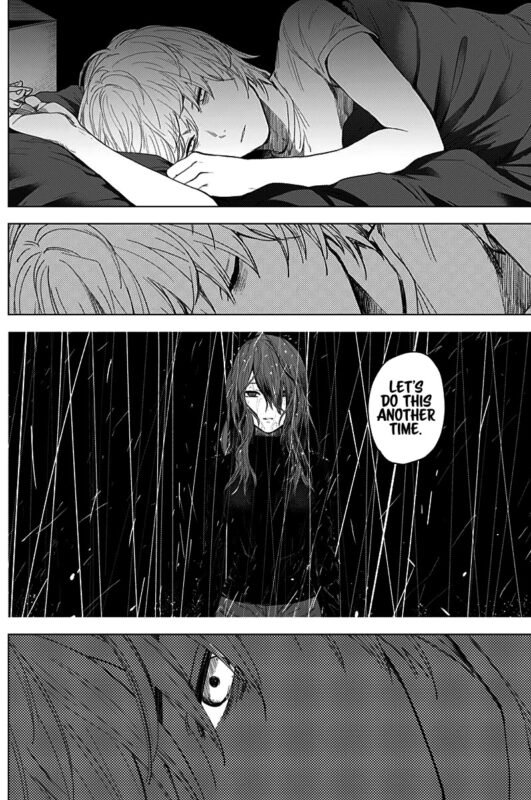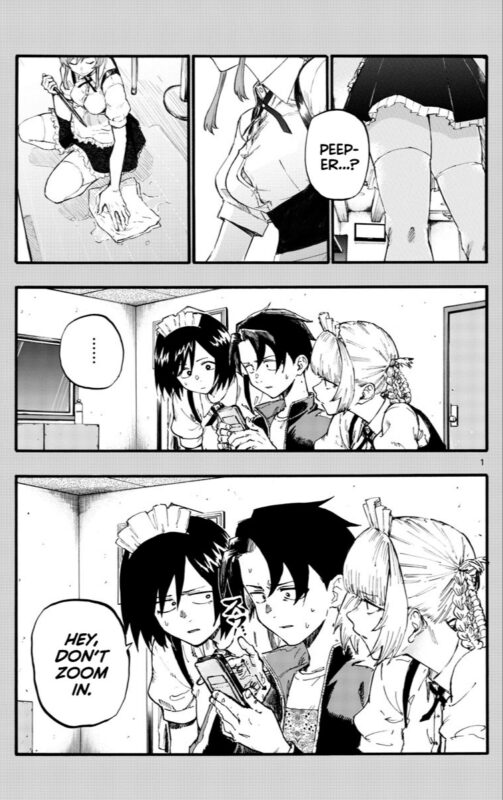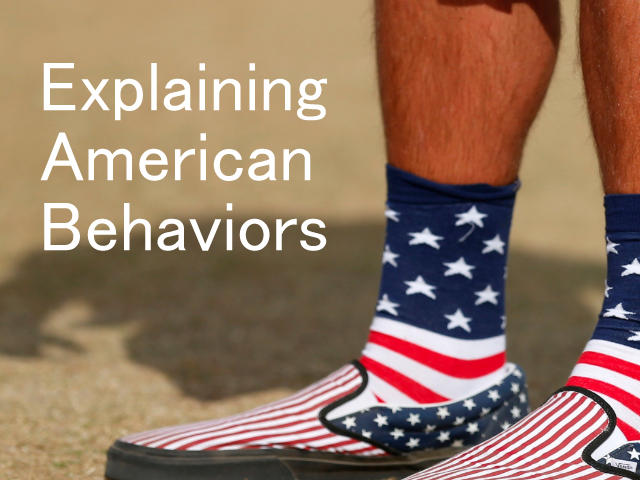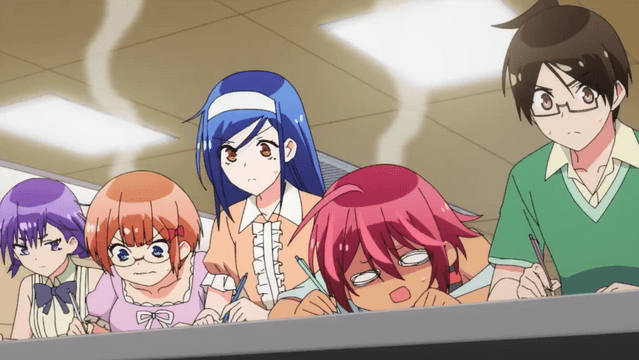
I live in a rather conservative region–the type of region that professes to follow Christian values while many people have a brood of kids, all with different last names, and where people have no qualms about shooting someone for theft. You know, possessions are more important that a life after all. To be fair, there are just as many people who actually live according to the morality Jesus taught…aside from disliking [illegal] immigrants. That’s one sticking point that seems to be nearly universal. When it comes to sexuality, well, it’s taboo. Depictions of sex cause such a stir and make up most of the challenges libraries in this region deal with. Not just with LGBTQ+ but with sexuality in general. Violence, on the other hand, rarely gets challenged in content libraries buy.
Manga and anime especially cause problems for libraries. Even though Game of Thrones teems with sex and nudity, it doesn’t cause as much a stir as High School DxD does. Some of this reduces the idea that animation and comic books target teens and kids. While this assumption isn’t wrong, the argument ignores the fact Game of Thrones (I mistyped this as “Game of Thongs” in the first draft!) can be checked out most public libraries by teens and kids. Librarians can’t police content in lieu of parents. Because of the hassle anime and manga in particular cause, many libraries censor what they buy.
Public libraries purchase material based on the needs and climate of the communities they serve. If you offend the community too much, the library would lose its funding. Because of this, libraries can’t be completely neutral. If sex scenes in manga offend the community too much, the library’s levy will be denied by voters. Parents are especially sensitive and don’t hesitate to cause a stir in small communities. When I advised manga purchases, I avoided manga like Goblin Slayer or other stories that feature sexuality. Every once in awhile we would slip in a highly requested manga that would push the community boundaries, but for the most part I censored my suggestions.

Recently, the manga Boy’s Abyss caused quite a stir because of its nudity and sex panels. One method libraries use to get around this community-boundary need to censor is with their digital offerings. Boy’s Abyss is available online along with other titles many libraries cannot carry on their shelves.
Of course this sort of censorship goes against the American Library Association’s guidelines. However, when it comes to the continued, healthy existence of a library and censoring through omission, which is the greater evil? At least a library that exists can continue to offer services and access to materials. These problems vary based on the community the library serves. Some communities are open, so manga like Boy’s Abyss and Goblin Slayer wouldn’t see too much of a challenge.
It strikes me that communities with these sort of “moral” qualms are often hypocritical. While religious parents cause a stir over drawings in a manga, the same parents often have fractured and complicated family lives that, frankly, do not follow the Bible’s pattern for a family. Likewise, violence is accepted. Much of this traces to American culture’s acceptance of violence and troubled relationship with sexuality. If you look at America’s past, you find the Puritans who considered sex anathema yet had no qualms about burning women as witches. Early American culture had no problems committing genocide on the Native Americans. This acceptance of violence and rejection of sexuality–to the point where even a class about Renaissance art can cause a problem for schools [NPR article]–traces back through Western history and medieval Christian thinking. Consider the acceptability of the Crusades and all the European wars the Catholic church tangled within. And this can be traced still further to the writings of Augustine and his fraught view of his own sexuality.
So, yes, public libraries censor manga and other materials in order to remain funded. And, yes, the censorship is contradictory. I once had a man ask me why libraries don’t have Playboy or Penthouse magazines when they have shelves of “women’s porn novels.” I told him it has to do with immediacy. Manga, Playboy, and similar visual media have immediate visibility. Women’s romances, which I have read some out of curiosity, have to be read. Of the two, I continued, the romances were worse for shaping your thinking about sexuality because of the nature of reading. The stories provide as unrealistic portrayals of men as those magazines have of women. However, the novels engage the mind at a deeper level because of the way you read. The man’s response: “Interesting, so you should get rid of those novels too if you want to be fair.” Then he grinned: “Or buy those magazines!”
Of course, romances and similar spicy novels can be used for good too. Censorship may seem all well and good until it comes after something you enjoy.
This episode reminded me of an episode I read in one of Jared Diamond’s books. He lived with a tribe in a tropical region where most people were for-all-purposes nude. However, custom had women wear a special grass skirt on their wedding day. The teen girls took to wearing this skirt as a fashion style, which got the boys hot and bothered. Modesty and sexuality has a strong nurture component to it. Nudity itself is neutral. I could read Diamond’s amusement as a Westerner between the lines of the section. Putting on that skirt is sexy and arousing whereas taking off clothes is immodest in our culture. What people consider a natural tendency often has strong cultural influence behind it. My point: people’s problem with nudity in manga (and the acceptance of violence) comes from the community’s culture and not some in-born human tendency to sexualize nudity.

The idea of immediacy applies to manga. Because manga is drawn, it is more visible and easier to consume. A concerned parent can flip through a manga and see a panel. A spicy section in a novel, however, has to be found by reading the novel. Merely flipping through one won’t suddenly reveal an offending scene. This immediacy is why libraries can slip past most community boundaries using e-manga. E-books aren’t readily picked up–you have to search for them, download them, and then “leaf” through them. And not as many people are as technical as you may think. For many in regions with the community boundaries I describe, even the younger crowd often lacks technology skills. Honestly, I am surprised at how basic most people’s computer and technology skills are, but I’m digressing here.
While it is easy to say you are against censorship and support free speech and free access, the messiness of people’s sensibilities and the culture you function within provides limits. In order to survive, public libraries have to strike a balance and often bow the the sensibilities of those who pay the bills. If libraries didn’t, they would cease to exist or be defunded to the point of irrelevance. Some librarians are more militant in their resistance, but as a student of history, this only works if you, well, take extreme measures. You can change a few minds, but most change happens when the older, resistant generations die out. Societal change is incremental and slow. To try to force change rarely works. Libraries still have the trust of most Americans, but this sort of militancy by libraries trying to force change on their communities break this trust. Breaking this trust would only remove the access and good libraries provide for no true gain.
So in the end, censoring manga is a necessary evil some libraries have to do. Without this censorship, the library won’t be able to provide any access–or severely limited–access to manga and other content. The community would lose trust in the library and remove its funding. If you are frustrated with the slow progress of your community, first, know that the long-arc of history is in your favor. Second, change can’t be forced, but it can be nudged one person at a time.




I suppose I’m lucky that I live in NYC where we’re super-progressive. Our libraries tend to have no problem releasing manga due to the number of passionate librarians that specialize in manga.
Also, I’m not surprised at how tech-illiterate a lot of people in this country are. To be honest, we don’t have high-quality internet in all parts of the U.S.
There’s a lot of Puritanism involved with regards to how U.S. culture views a lot of things.
It is amazing how Puritanism holds on, yet violence is perfectly acceptable and even enshrined by people.